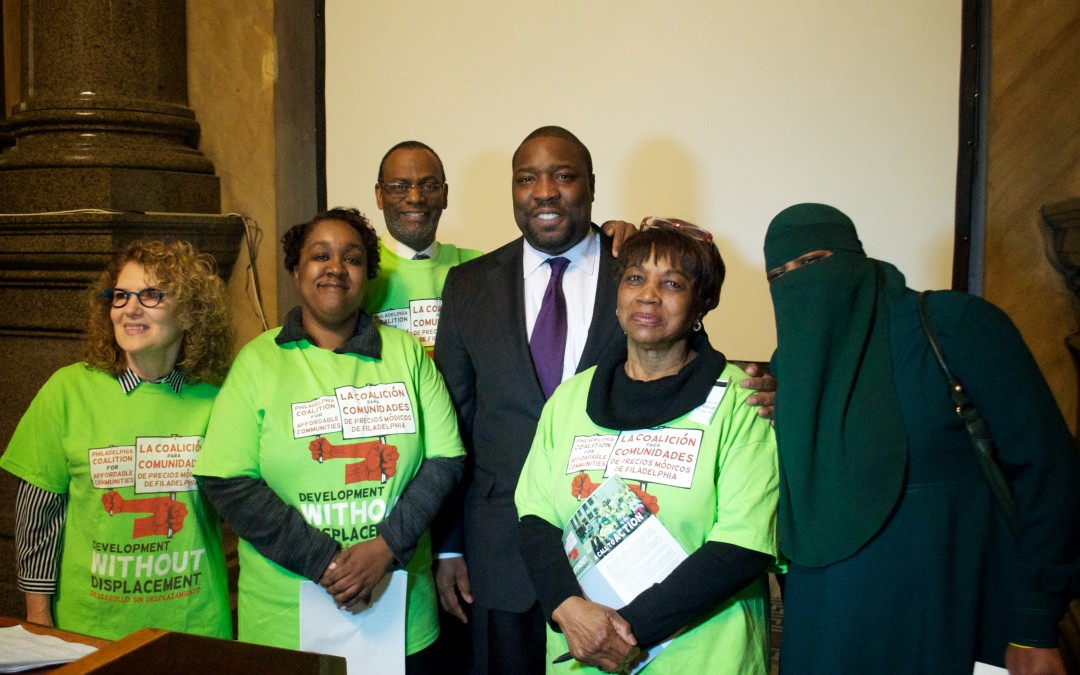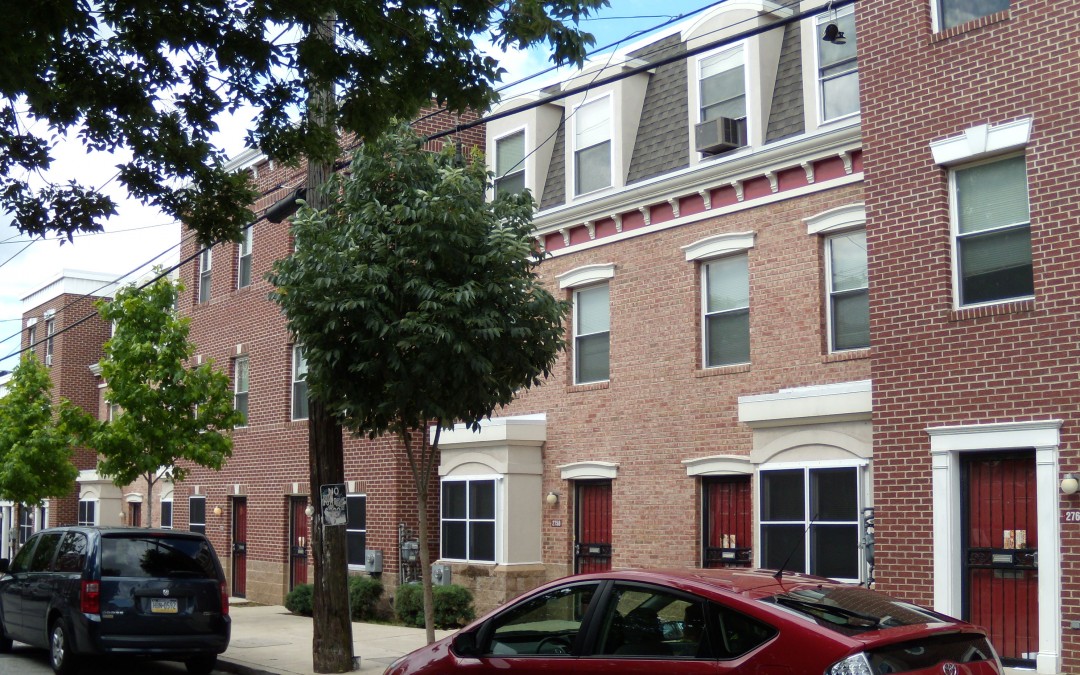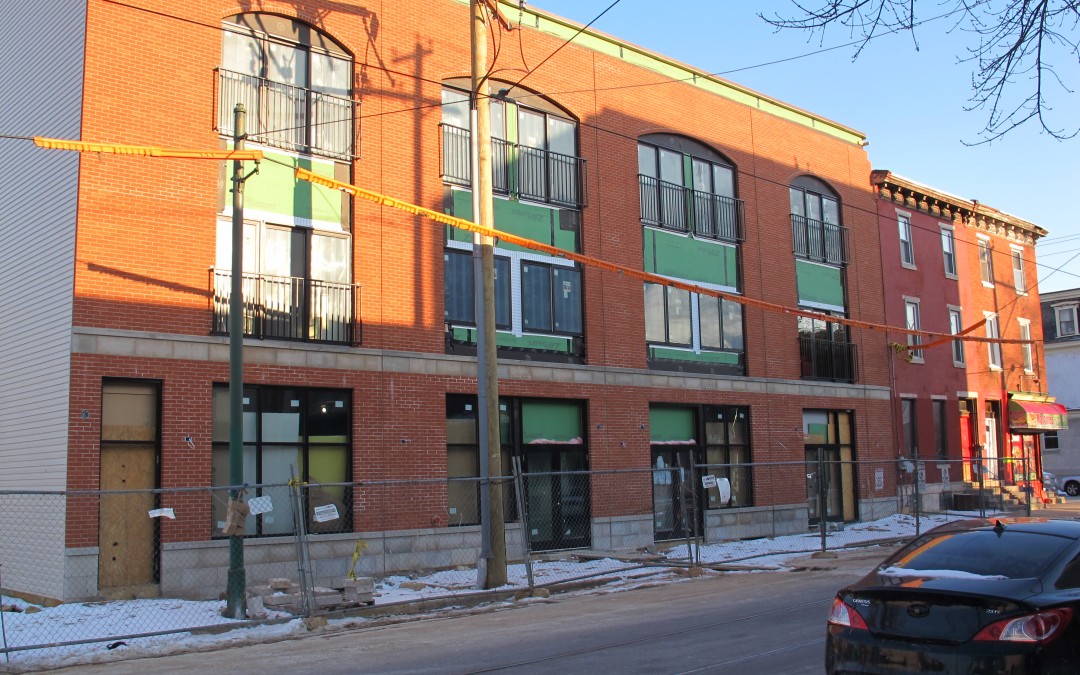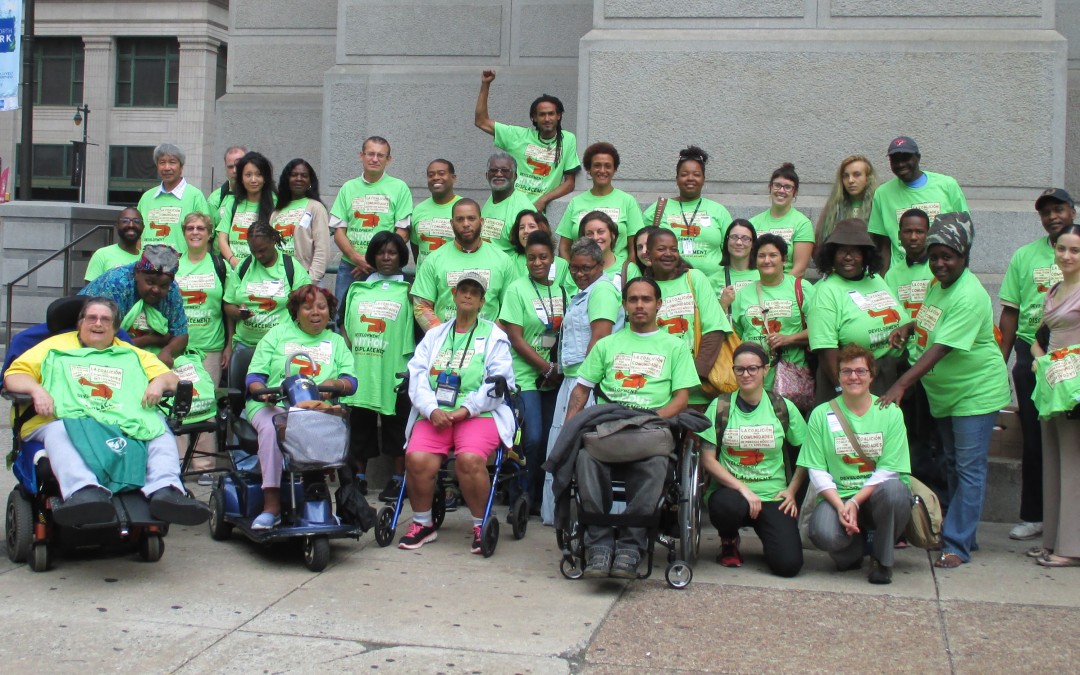by pcacadmin | Jun 9, 2015 | Affordable Housing, Displacement, Gentrificaton, Uncategorized
Recently released data from national housing experts paints a troubling picture of housing affordability in Philadelphia. Our report Development without Displacement contains substantial evidence of the real impact a rapidly rising cost of living has exacted on long-term low-income families and individuals, forcing too many to leave and putting countless others at-risk of being driven out. The findings from one of these experts reinforces our report, but another study sheds new light on another at risk population, which is often credited with helping the city rebound after decades of declining population numbers: millennials and recent college grads. The first data set comes from the annual Out of Reach report, produced by the National Low Income Housing Coalition in partnership with the Housing Alliance of Pennsylvania. It shows that in order to afford a modest two-bedroom apartment at fair market rate in the Philadelphia metro area, a worker needs to earn $22.23/hour. Put another way, that means an individual would need to hold 3.1 full-time jobs at the current $7.25/hour minimum wage just to afford a place to live. Even recent proposals to raise the minimum wage to $15/hour would be insufficient! (The full version of that report can be found here) Trulia also released an analysis of affordability for recent college grads in large metro areas. It says that the income they need to afford median rent in Philadelphia rings in at $56,870. What makes that so troubling is that median income for new grads here is only $27,840 – less than half of what they are said to need. (The full version of that report can be found...

by pcacadmin | May 21, 2015 | Affordable Housing, Election, Gentrificaton
The Philadelphia Coalition for Affordable Communities has been paying close attention to this primary election. Our Development without Displacement campaign’s goal of securing more money for affordable accessible housing and urban agriculture will need strong City Council people to write and pass legislation that will increase funding for the City’s Housing Trust Fund. While the news of Jim Kenney’s win dominates the headlines, PCAC has been paying more attention to the City Council race because City Council will write and vote on our legislation. Tuesday night’s election results bring a mix of returning council members whose support for affordable housing is known and a new group of potential allies and untested individuals. Philadelphia is changing. There’s a sense of optimism in the way that Philadelphia politicians are welcoming new-comers and real estate investment to Philadelphia’s neighborhoods. Yet that optimism is overshadowed by the gentrification ushered in by some real estate developers who are speculating on our neighborhoods, driving up housing costs and displacing working class families. In North, South and West Philadelphia where 77% of new market housing has been built in the past five years, housing costs are increasing rapidly. 50% of renter households in these neighborhoods are paying more than they can afford in rent and over 30% of homeowners are also spending too much of their income on housing. Let’s take a look at some key races whose outcomes will influence the rate that Philadelphia will gentrify. The 2nd District: Tuesday night, incumbent Kenyatta Johnson won over challenger and real estate developer Ori Feibush. South Philly has seen the median home sale price increase 184% between...

by pcacadmin | May 14, 2015 | Election, Philadelphia, Uncategorized
The Primary Election is next week (Tuesday, May 19th) and Philadelphians have an opportunity to elect (or re-elect) members of City Council, along with a new Mayor. Who gets elected will have a profound impact on the future of our city, as they will decide which policies get enacted – and which don’t. Two of our Coalition’s steering committee members, Nora Lichtasch and Tom Earle, co-wrote an op-ed in the Philadelphia Daily News reminding voters to choose leaders with public-policy goals that encourage equitable community development and represent plans that include people of all income levels in the future of our neighborhoods. Their words are critically important to keep in mind when you head to the polls on Tuesday. Our Coalition has put a proposal forward to expand and protect affordability in gentrifying neighborhoods by applying a 1.5% Anti-Speculation Tax on ‘flipped houses’ (those bought and resold within 24 months). It has the potential to generate up to $12 million in additional revenue for the Philadelphia Housing Trust Fund that can literally change thousands of lives. Since its inception in 2010, the Housing Trust Fund has dedicated 50% of its proceeds to improving housing options for families earning less than $20,000 per year and has provided housing opportunities to more than 14,000 low- and moderate-income families, seniors, disabled, and homeless people to date. We found that in 2013, more than 6,000 real estate transactions in the City fit the description of flipped houses, at an estimated total value of $782 million. In addition to that figure clearly indicating a very profitable business practice, many of those transactions were discovered...

by pcacadmin | Mar 10, 2015 | Displacement, Gentrificaton, News, Philadelphia
With words like “glam,” building “pedigree,” “hot” neighborhoods, and “luxification,” Philadelphia Magazine’s Philadelphia’s New Boom article clearly highlights who is going to benefit from our city’s revitalization- the wealthy. The investments are a sign that our city is on the upswing, but with (multi-) million dollar homes being built it is clear that, in some neighborhoods, Philadelphia is facing growing inequality. Philadelphia has tackled a declining population for decades and our recent resurgence has meant significant changes in our housing market. As a city we are in serious need of a boost to our tax base and this new development can help bring that. But even as housing costs skyrocket, income levels for most Philadelphians are shrinking. Philadelphia remains one of the poorest major cities in the nation and this housing boom does nothing to address the needs of seniors, disabled citizens, and working families- many of whom struggle to stay in the communities they call home. If our city lets development proceed unchecked, we could soon be facing the same housing crises that plague San Francisco and Boston, where even firefighters and teachers cannot afford to live in the city where they work. We need to make sure that we are preserving affordability in rapidly changing neighborhoods so that those who are committed to and invested in our communities can afford to stay. We want to see Philadelphia revitalized in a way that does not displace the people who have lived through this city’s disinvestment. We want to be a city where every neighborhood has: • Economic and racial diversity, • Affordable, accessible housing options, • Local businesses...

by pcacadmin | Sep 11, 2014 | News
On the morning of September 11th, more than 60 of our members launched our Development without Displacement campaign by attending the first City Council Meeting of the fall session. We announced our campaign with numbers, and showed our collective unity by filling the council chamber while wearing our new green Development without Displacement shirts. The goal of our action was to show City Council that our coalition consisting of many of the core community, disability, faith, labor, and urban agriculture groups as the Campaign to Take Back Vacant Land, is going to continue to fight for accessible affordable housing and fresh food production. Similar to our last campaign to pass a fair, accountable, and transparent Land Bank, we have joined together to pass a suite of legislation that can slow the tide of displacement that is sweeping over many of Philadelphia’s neighborhoods. Our call to fight displacement in Philadelphia’s communities resonated with at least one council person. Councilman Kenyatta Johnson draped one of our shirts on the back of his chair in support of Development without Displacement. He also pleasantly surprised us by announcing and welcoming our coalition to the entire chamber. After the action we held a spirited debrief outside of City Hall. We’re excited to be working together to launch this campaign to ensure Development without Displacement! ...




